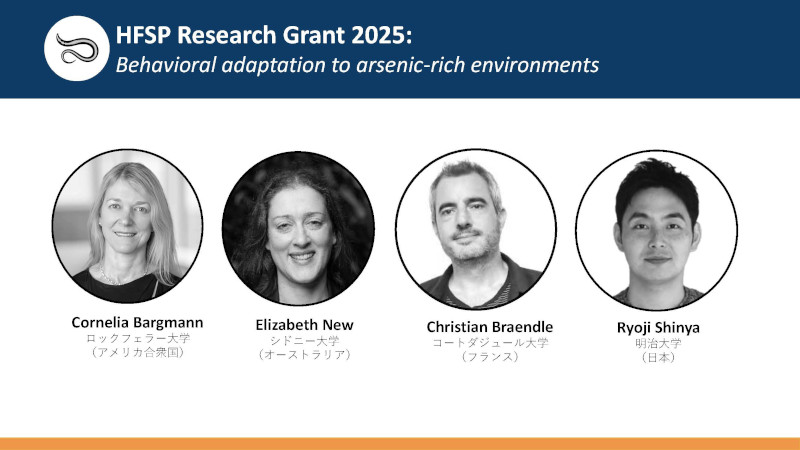[School of Agriculture] Associate Professor SHINYA Ryoji wins HFSP 2025 Research Grant
Apr. 23, 2025

Team members' photo
– Taking part in international collaborative research on biological adaptation in the age of climate change –
SHINYA Ryoji, Associate Professor at Meiji University’s School of Agriculture, Department of Agriculture, has been selected to receive the 2025 Research Grant from the Human Frontier Science Program (HFSP) 2025 Research Grant, an international program supporting research in the life sciences.
HFSP is a globally acclaimed grant program that supports pioneering and challenging international collaborative research in the life sciences, with many awardees having gone on to win Nobel Prizes.
For FY2025, 30 projects were selected from 780 applications from around the world, including 25 program grants and five early career grants —a selection rate of just 3.8%.
Together with Professor Cornelia Bargmann (The Rockefeller University, USA), Dr. Christian Braendle (Université Côte d’Azur, France), and Professor Elizabeth New (The University of Sydney, Australia), Associate Professor SHINYA will engage in the research “Behavioral adaptation to arsenic-rich environments (behavioral changes for surviving extreme environments)”.
Focusing on animals that have adapted to extreme environments contaminated with toxic elements such as arsenic, which is becoming more widespread owing to climate change, this study explores the mechanisms of detoxification and survival strategies. Specifically, nematodes isolated from the high-arsenic environment of Mono Lake, California, will be used as a model to conduct a multifaceted analysis of how environmental factors, nervous system, genes, and behavior influence one another. This study is expected to contribute to a better understanding of the environmental resilience of organisms and ecosystems (their capacity to adapt to environmental changes).
The project will be carried out by a multidisciplinary international team of experts in nematology, ecology, chemistry, genetics, neuroscience and evolutionary biology, supported by a three-year grant of approximately US$500,000 annually.
Related links


